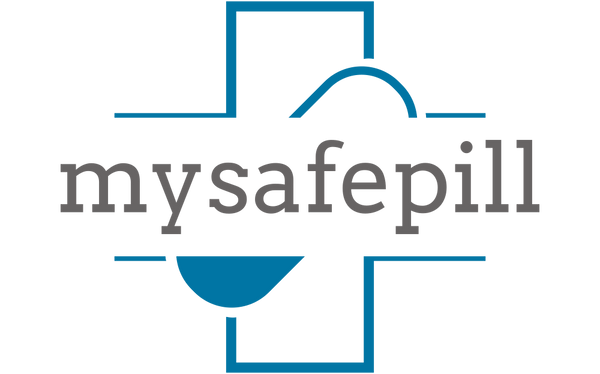
The Future of Insomnia Treatment: A Comprehensive Analysis
Share
Understanding insomnia: causes and impact
Insomnia can be caused by various factors such as stress, anxiety, depression, and certain medical conditions. It can have a significant impact on a person's daily life, leading to fatigue, difficulty concentrating, and irritability. Lack of sleep can also affect physical health, increasing the risk of conditions like heart disease and obesity. It's important to recognize the underlying causes of insomnia in order to address the issue effectively.

Current treatment options for insomnia
Many people with insomnia turn to medication, cognitive behavioral therapy for insomnia (CBT-I), or natural remedies to manage their symptoms. Medications like ambien and lunesta are commonly prescribed, but they may come with side effects and the risk of dependence. CBT-I, on the other hand, focuses on changing the thoughts and behaviors that affect how you sleep. It has been shown to be effective and have long-lasting results. Some may find relief through relaxation techniques like meditation or yoga, or by making lifestyle changes such as avoiding caffeine and creating a comfortable sleep environment. It's important to consult with a healthcare professional to determine the best treatment approach for your specific situation.
The limitations of traditional insomnia treatments
Traditional insomnia treatments, such as medication and therapy, may not be effective for all individuals. Some people may experience side effects from the medication, such as drowsiness during the day, while others may find that therapy requires significant time and effort without producing the desired results. Additionally, these treatments may not address the underlying causes of insomnia, leading to limited long-term effectiveness. New, alternative treatments, including cognitive behavioral therapy for insomnia (CBT-I) and mindfulness-based therapies, are emerging as promising options for those who may not benefit from traditional treatments.
Innovation in insomnia treatment
Innovations in treating insomnia continue to evolve, offering hope to those struggling with sleep. The merging of technology and healthcare has led to the development of new treatments like cognitive-behavioral therapy and digital therapeutics, which aim to address the root causes of insomnia. These innovative approaches seek to provide personalized and effective solutions, taking into account individual circumstances and needs. Digital therapeutics, in particular, are gaining attention for their ability to deliver treatment remotely and in a user-friendly manner. The future of insomnia treatment appears promising, with ongoing research and development paving the way for more effective and accessible options.
Technology's role in managing insomnia
Using technology to manage insomnia is becoming increasingly popular. Smartphone apps, such as those offering relaxation exercises and sleep tracking, are gaining traction in helping people monitor and improve their sleep patterns. Moreover, wearable devices, such as smartwatches and fitness trackers, are equipped with sleep monitoring features that provide useful insights into an individual’s sleep quality. Light therapy devices, often used to treat Seasonal Affective Disorder (SAD), are also being explored as a potential aid for managing sleep disorders. These advancements in technology offer promising avenues for those seeking effective ways to address insomnia.
Cognitive behavioral therapy for insomnia (CBT-I)
CBT-I is a structured program that helps you identify and replace thoughts and behaviors that cause or worsen sleep problems. It typically involves four to eight sessions that focus on education about sleep, changing sleep habits, and making lifestyle adjustments. Studies have shown that CBT-I is more effective than sleep medications in the long term, and its benefits can last for years. If you're considering CBT-I, it's important to find a therapist who is trained in this specific type of therapy.
The potential of medical cannabis in insomnia treatment
While medical cannabis has gained attention as a potential treatment for insomnia, research on its effectiveness is still ongoing. Some studies have shown that cannabis may help improve sleep quality and reduce the time it takes to fall asleep. However, it's important to note that cannabis can have side effects, such as impaired memory and coordination, and may not be suitable for everyone. Additionally, the legal status of medical cannabis varies by location, so it's essential to consult with a healthcare professional to understand the current regulations and potential risks before considering it as an option for insomnia treatment.
Integrative approaches to treating insomnia
Many people find relief from insomnia through integrative approaches, which combine various methods to address the root causes of sleep difficulties. Integrative treatments may include a combination of cognitive-behavioral therapy (CBT), relaxation techniques, sleep hygiene education, and possibly medication or supplements. CBT has been shown to have long-lasting effects and is often considered the first-line treatment for chronic insomnia. Relaxation techniques, such as meditation and deep breathing exercises, can help calm the mind and body before bedtime, promoting better sleep. Sleep hygiene education focuses on optimizing the sleep environment and establishing healthy bedtime routines. These approaches, when combined, offer a holistic and effective way to manage insomnia.
Lifestyle modifications for better sleep
Making healthy lifestyle changes can significantly improve your sleep. Here are some strategies you can try:
- Stick to a sleep schedule: Try to go to bed and wake up at the same time every day, even on weekends. This helps regulate your body's internal clock, making it easier to fall asleep and wake up.
- Create a relaxing bedtime routine: Develop a calming routine before bed, such as reading, taking a warm bath, or practicing relaxation exercises.
- Limit exposure to screens: The blue light emitted by electronic devices can interfere with your body's natural sleep-wake cycle. Try to limit screen time in the hour leading up to bedtime.
- Watch what you eat and drink: Avoid consuming caffeine and heavy meals close to bedtime, as they can disrupt sleep. Meanwhile, try to stay hydrated during the day to prevent waking up thirsty at night.
- Exercise regularly: Engaging in physical activity during the day can help you fall asleep faster and enjoy deeper sleep. However, avoid vigorous exercise close to bedtime, as it may be stimulating.
The future of insomnia treatment: what to expect
Future treatments for insomnia show promise in providing more targeted and effective solutions. Innovations such as personalized medication, advanced behavioral therapies, and cutting-edge technologies aim to address the root causes of insomnia. These approaches are designed to offer tailored and holistic treatment plans, ensuring better outcomes for individuals with varying sleep challenges.
